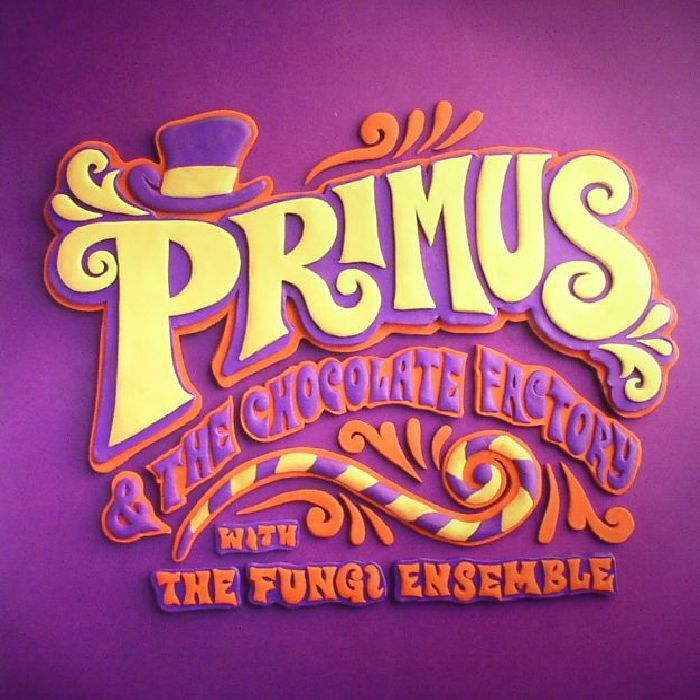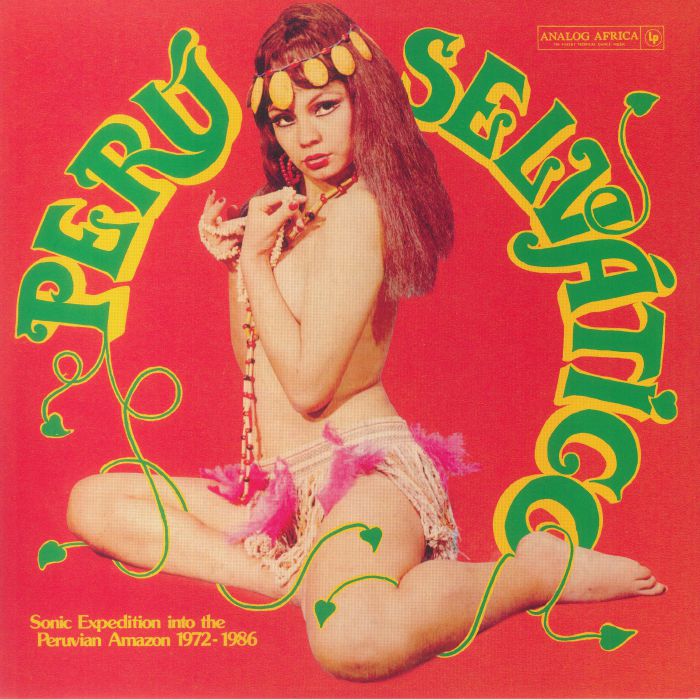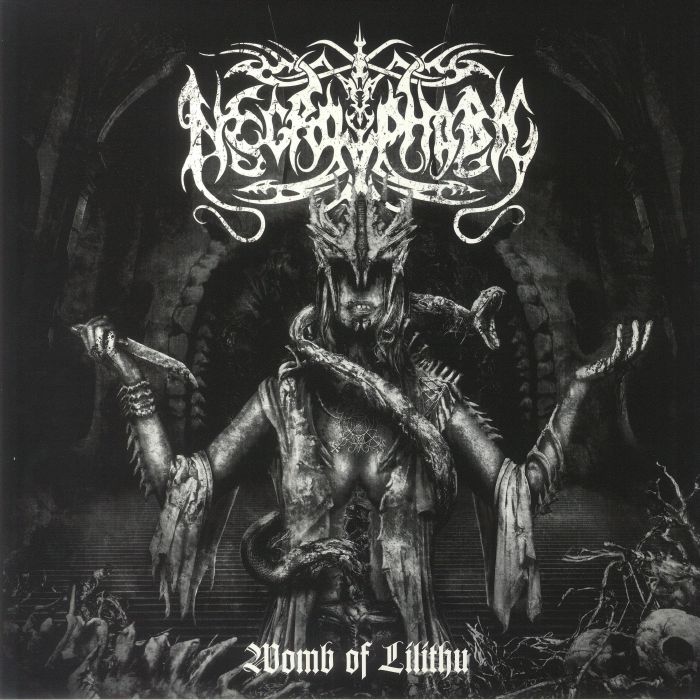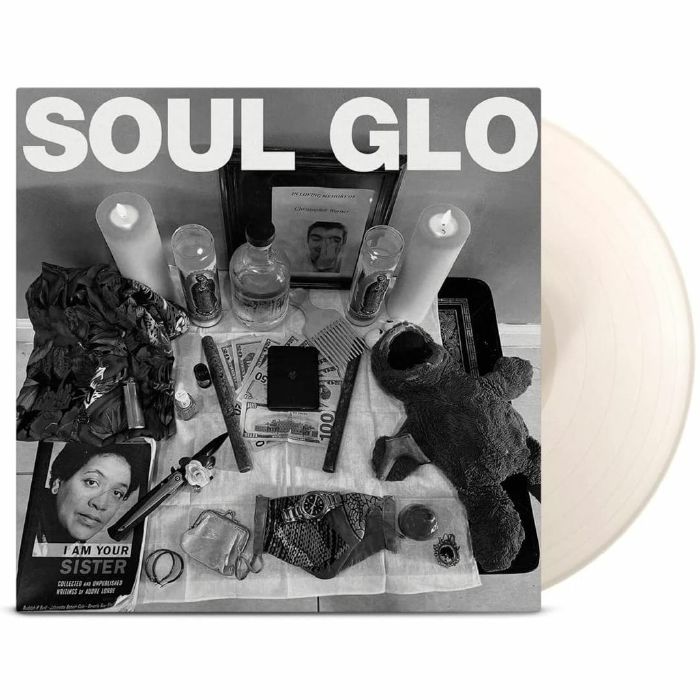The best new albums this week
All the long playing action you need to know about

ALBUM OF THE WEEK
Various – 80s Underground Cassette Culture Vol 2 (Contort Yourself)
When we interviewed Murray CY earlier this year, – the curator of 80s Underground Cassette Culture compilations, and the head of the label Contort Yourself – the tagline quote ended up being “the purely digital experience isn’t satisfying people as much anymore”. But the reality is that the contemporary underground music experience is a lot less clear cut than that. Some DIY artists in 2022 are embracing the new digital order outright – while others are still dragging their heels and mixing up their release formats, straddling both physical and digital, and accepting the cost of turning their music into material-historical relics.
Contort Yourself don’t have to worry about any of that. Their compilations focus on the music landscape 40-30 years ago, when CDs weren’t still that popular yet and cassette culture still unequivocally ruled the DIY music roost. With simpler times came more confidence as to where the formal home for DIY music was, which also meant a more unified sound – scratchy, raw, sometimes broken, cold, warpy, loopy, eclectic.
If a release format can dictate the way a certain kind of music sounds – in the 1980s, this was mainly post-punk and industrial in the UK – it makes sense to make a compilation of the stuff. The first volume came out in 2017, without any kind of sociopoliticlal context to ground it in. But in 2022, with this second iteration on the horizon, the fate of DIY music hangs in the balance thanks to various forces, whether they be a musicophobic establishment class, soured economic conditions for those who don’t want to sell themselves out, or Brexiteer hostility towards touring artists. Ah, the good old days. We’re still hankering after them – perhaps tiresomely. But the music says it all, and the sheer quality of the selections of 80s ephemera here shows that some DIY artists at least had it much better back then.
Murray hopes to make prototypical selections, seeking out almost impossibly obscure tunes that also carry a hint of 2020s modernity to them. While they might have come from ‘industrial’ as an umbrella scene, they might also sound like techno, grime, or footwork today. Stefan Schrader’s ‘Attempt To Rap’ is an instrumental beats tune that doesn’t actually contain any attempts to rap on it, but it still sounds like a steppers’ halftime track lifted from a PS5 game. Misteek’s ‘Bump Beat’ could easily be mistaken for a Basic Rhythm or Ruff Sqwad B-side. M Nomized’s ‘Nitsed’ could easily be an old AFX Analord track, UPM’s ‘Anstalt’ has a drum n’ bassy edge… finally, Interaccion’s ‘Newton’ sounds as fresh and cool as The Umlauts’ Euro-indie excursions.
Murray seems to know our favourite will be the opener, ‘Under The Church’ by Die Achse, a track by an alias of one Martin Drichel, whose music aimed at the same sheer, icy rapture that present-day artists also tend to shoot for. And yes, familiar faces more suited to the browner, ‘tapey lo-fi’ sound we might ascribe to the 80s also show up, like John J Lafia. But the point is, the musical ‘industrial revolution’, of which cassettes were one of the few witnesses, was a deeply pangaeic point in electronic music history from which not only many different dance music styles were conceived before they were officially ‘born’, but which must be documented and preserved.
With that it mind – and despite the leaps made in music tech in the last 40 years – it seems DIY music today suffers more uncertainty as to whether it’ll be well preserved, not less. Compilations like this exist precisely because the music on cassette in the 1980 was scarce. The Internet provides today’s indie artist with a kind of abundance, whereby they can just whack up a tune on a streaming platform of their choosing, and by virtue of the plethora of ‘competing’ artists and distractions from megastars, it’ll actually get lost in the oversaturation rather than found. But is this net-based abundance an illusion, especially if the Internet still relies on physical undersea pipelines that aggressive warring state powers can cut at any moment? Will their music be preserved on vinyl in the same way? Time will tell.
JIJ

Various – ‘…it wasn’t really me’ (Knekelhuis)
Following up on last year’s ‘and it felt like…’ collection, Knekelhuis gathers together another compelling assortment of leftfield electronics which is less bound by stylistic tropes and more by a prevailing mood. There’s a duskiness lingering over ‘…it wasn’t really me’ which is very easy to sink into during the twilight months of the year, when the sun feels like it barely creeps over the horizon. What’s particularly engaging about the curatorial approach here is that it’s not beholden to one obvious way to communicate this nebulous feeling, and so from track to track you’re continually intrigued and drawn further into this microcosm. It’s a collection which transcends its component parts – certainly not functional as a representative sampler for the assembled artists, but rather a chance to hear disparate voices drawn into a narrative which is not their own.
https://www.juno.co.uk/products/it-wasnt-really-me/915117-01/There’s space for laconic shoegaze from Spivak, whose unerringly beautiful ‘The Fucking Bed On The Floor’ arrives as a short and sweet centrepoint to the album. Such is the consistent mood, the swift cut into Civilistjävel!’s cracked electronics feels like a sharp swerve in the prior track rather than a different piece altogether. There are more pronounced rhythms laid down from Tammo Hesselink, but even his nimble programming succumbs to the spongy muck the compilation sprouts from.
More outright ambience comes courtesy of Salamanda, who build on a breakthrough year with a glorious cascade of bell tones cast in a wintry light, while Lara Sarkissian’s electro-acoustic ruminations on ‘Eternal Response’ juxtapose bit crushed interference and pearlescent synth strikes with fluttering flute all acquiescing to a sorrowful emotional slant. Each piece has its distinctive qualities, and yet feels part of this greater whole. It’s a masterful example of how to make a compilation for art’s sake, when so many are simply another means of doing business.
OW

Primus – Primus & the Chocolate Factory with the Fungi Ensemble (ATO)
The eighth full-length from psychedelic metal absurdists, Primus, was arguably both their most natural return to form as well as simultaneously the strangest, outsider project they had ever mustered.
Marking the return of original drummer, Tim “Herb” Alexander, to the fold, after 2011’s, ‘Green Nagauhyde’, featured the sole recorded release from replacement Jay Lane; it wouldn’t be until 2017’s, ‘The Desaturating Seven’, that the definitive trio of Alexander, guitar virtuoso Larry Lalonde and eccentric bass-mangling frontman Les Claypool would craft their first work of solely original material together since 1995’s, ‘Tales From The Punchbowl’.
2014’s, ‘Primus & the Chocolate Factory with the Fungi Ensemble’, on the other hand, was the twisted yet loving homage to the soundtrack of 1971’s Roald Dahl adaptation, ‘Willy Wonka & The Chocolate Factory’, and it sounds precisely how one would imagine.
Admitting his utter infatuation with the film in his adolescence (before it was naturally replaced by an obsession with Steven Spielberg’s, ‘Jaws’), Claypool sarcastically cited the low income from streams in the internet era as the primary reason for the album and subsequent tour cycle, all orchestrated in order to sell chocolate bars, as “you can’t digitise a chocolate bar – yet”.
The promotional tour even included bars named after classic cuts from the band’s catalogue such as “Mr. Krinkle Bars” and “Pork Soda Bars” (from 1992’s ‘Pork Soda’ ), “Professor Nutbutter Bars” (from the previously mentioned, ‘Tales From The Punchbowl’), and “Bastard Bars”.
Enlisting the help of both cellist, Sam Bass, and vibraphone/marimba/tablas multi-instrumental maestro, Mike Dillon, to round out the “Fungi Ensemble”, the tracks here toe the line between farcical whimsy and subtly brewing menace, in an almost identical yet notably heightened manner to the original motion picture.
Be it the bizarro wonder of, ‘Candy Man’, or the truly unsettling, Tim Burton on mescaline vibe of, ‘Golden Ticket’, the band manage to warp and reimagine the material without ever losing its poignant essence or childlike wonder, although it might stray closer to the infamous boat scene’s atmosphere rather than something as jovial as belching Fizzy Lifting Drinks. Even an opportunity at melodious surprise on, ‘Pure Imagination’, is played for dark, carnival horror, yet the project never feels like a vandalization.
Rather than immediately offering eager fans a new batch of original work right out of the gate, Primus continued their methodical, chaotic leftfield approach with one of the truly strangest albums to come out in 2014. Equal parts homage and psychotic rethread, this reissue arrives just in time for Christmas, and offers a chance to re-envision a staple of one’s childhood through a Vaudevillian Hunter S. Thompson lens of psychedelic debauchery.
ZB

Cumbia is the sound of Latin America, sprouting from the continent during the early 1800s. Originally a Colombian dance style with influences from local folk dances, it was commercialised in the 1940s and spread outwards into pretty much all Latin American countries, one of which of course was Peru.
This ‘Sonic Expedition’ from the label Analog Africa is a journey into the Cumbian heart of darkness, the Peruvian rendition of the sound. According to the label, ‘Amazonian’ cumbia as it is known didn’t take on its full form until around 1972, when the nation first implemented electricity, and folk artists who had formerly been enslaved during the colonial era could plug electric guitars into amps for the first time. The sound from Peru also became known as ‘psychedelic cumbia’, which was uniquely appealing for its trancelike qualities borrowed from various prog and psych musics popular in the West at the same time. Of course, the Peruvian jungle is famous for its Ayahuasca, so we have no doubt that this ritual shamanic brew played an important role in the development of this ultra-alive sound.
The tracks here are lo-fi and restored in a ragtag fashion. The star is the opener, ‘Descarga Royal’ by Los Royal’s De Pucallpa; the puffy-shirted, slicked-back-hair-wearing quintet ensure a trancelike state with two-chord fingerstyle arps and, making sure we take in a hefty huff of the Ayahuasca pot’s steam. Uniquely wistful and weird sounds ensue; ‘La Trochita’ by Los Ranger’s De Tingo Maria is a haunting tune, something like a Day of the Dead folk dance with its ultra-weird guitar lead. Other selections have a proto-techno feel to them; ‘La Bola Buche’ has that on-off beat, kick-hi-hat pulse to it, and is in 4/4 – it could easily be edited and thrown into a naughty CDJ set. An overall fascinating comp, from which you won’t return with the same outlook on life.
JIJ

Mania D / Malaria! / Matador – Rare Originals (Moabit)
If the triumvirate of Mania D., Malaria! and Matador are cult icons at best, then it’s a gross disservice which speaks volumes for the continued challenges women face for equal recognition. In a similar manner to how The Slits are so often overlooked or misunderstood in the nascent years of UK punk, the three ‘M bands’ mentioned above are vital and influential, yet people rarely speak their name. That they were all women shouldn’t matter, but of course it does. Around the nexus of Gudrun Gut and Beate Bartel, Mania D. in the late 70s begat Malaria! begat Matador, with a revolving cast of collaborators entrenched in the vital, risky climate of West Berlin.
Somewhere between post-punk and industrial comes their raw, fearless sound, and true to their pioneering spirit they decided to commemorate their work with a project which drew in a whole host of female collaborators under the Monika Werkstatt banner to re-interpret some of these foundational tracks for the M_Sessions compilation last year. This collection however came in response to these new versions, as the original band members went through their archives and selected particular rarities which enrichen the story of the bands.
There’s a diaristic quality to parts of this collection – brief demos and skits which take you into the world the band were in, and, at the risk of making another lazy Slits comparison, not a million miles from the kitchen sink quality of the Untitled (Bootleg Retrospective) released on Y Records in 1980. That’s not to detract from the fully fledged tracks though – Malaria!’s ‘I Will Be Your Only One’ is a perfect piece of hard-hearted post-punk, while Matador’s ‘Nite Time’ showcases the collective’s technical progress in a captivating, piano-led gothic draped in haunting studio shimmer.
But it’s just as thrilling to hear the tin can cacophony of a live Mania D. recording from 1980, complete with obligatory post-punk sax wails and a relentless D-beat (on ‘Zukunft’). In a beige world its fidelity should fail every quality control check, but that would of course miss the point. Even the modest patter of hand claps at the end tells a story of low-attendance gigs on the edge of society – a more honest reflection of the times than the grandstanding so many legacy acts are prone to. It’s raw and real, and hopefully goes some way to redressing the imbalance in appreciation for these undoubted musical pioneers.
OW

Swans – Public Castration Is A Good Idea (Mute)
Public castration is not a good idea, but Swans are contrarians, and a much-admired band to boot, so we’ll allow it. The amusingly-named live album Public Castration Is A Good Idea was first released in 1986 as the result of a rather speedy set of edited live takes of the band’s albums Greed and Holy Money in London.
Swans like to play at misanthropic, authoritarian themes, with this live album being a relic of their critically ironic money-worship era. As such, it’s one of their few cash-ins. This new edition from Mute more or less provides yet another a menacing portal to Swans’ doomy, apocalyptic sonic universe, but the twist is that it’s realised for the live music realm – “here’s your money!” – with the effect of tarnishing the greedy music industry in the real world, not just the abstract.
It’s something of a mix-and-match. Greed and Holy Money tracks are interspersed, producing a no-particular-order foray through iconic slow-trudge sludge rock, no more tempered or lessened by the live recording aspect. Michael Gira’s voice as ever stands in for the voice of a dead god, half-screaming, half-crooning through guitar feedback, and only the lowest notes of the piano in some cases, like ruinous church bell tolls. Like the roar of the bank of god coercing its subjects into a financialized religious existence, drums bang and dread lords wail, making this a faux-morally bankrupt live album both in sound and theme.
JIJ

Necrophobic – Womb Of Lilithu (Century Media)
The seventh full-length from Swedish blackened death metal legends, Necrophobic (named after the Slayer cut from 1985’s seminal, ‘Reign In Blood’), would mark their final project with bassist, Tobias Sidegård, handling vocal duties, before departing later in 2013 to make way for the return of founding vocalist, Anders Strokirk, on 2018’s momentous re-establishing of form, ‘Mark of the Necrogram’.
‘Womb Of Lilithu’, would continue the band’s reign of grandiose, frosted spectacle, from its grating riffs imbued with nuanced melody, to the cavernous heaviness and abyssal depths the malevolence could plummet, but in retrospect signals the end of one cycle, before their sonic rebirth and rethread half a decade later.
From the lush atmospheric orchestral opening title-track, to the bookended serene instrumental, ‘Amdusias’; that closes out the proceedings, there’s an undeniable sense of catharsis buried within the myriad of sonic devastation that is often tempered by curious displays of minute vulnerability, as if to war with the beast inside oneself.
‘Astaroth’, brims with hyper-blackened punk energy, recalling the earlier, ‘Deathcrush’ era of Mayhem if it were recorded with actual money and delicacy behind it, while, ‘Opium Black’, swells with melodious vocals and progressive soundscapes before imploding in on itself with pummelling fury, unmatched by several of their peers, still this late into their tenure.
Tracked at an admittedly strange point for the group, as Sidegård would depart not long after recording had ceased; the project looms with inescapable dread, yet constantly subdued by an inner search for self-preservation and a sonic refusal to constantly submit to the oppressive, ensuing darkness.
ZB

Dies Lexic – Lexicon Hall (Favela Discos)
Portuguese experimental label Favela Discos welcome a new signee to their repertoire, Dies Lexic, a morphologic musical duo consisting of Inês Tartaruga Água and Xavier Paes. Dies Lexic’s status as as yet unknown artists (at least, unknown to collective Internet-based consciousness) lends well to their nature, as we can already tell that this is a duo who thrive on the image of obscurity.
Why do we think so? Well, we can surely see why dyslexia is a common trait of artists who don’t work in the world of the lyrical; the world of words. A reluctance to learn, use or engage with words – whatever that may be – might lend to expressing oneself in other ways, like making experimental electronic ambient music. Without a lexicon, one needs a wordless language, such as music.
It’s in the name. Dies Lexic are implicit advocates for the death of words, and the subsequent rebirth of music alone. They demand a dialogue with the mysterious, apocryphal unconscious mind. That’s why they’re ‘Running Into The Dusk Having No Place To Go’, diving headfirst into their own inexplicable, dark dreams, which no lexicon can express. The track is ritualistic and frightening; it relies not only on well-known instruments such as guitars, but also comparatively ‘lost to the ages’ folk instruments like whistling water jars and rotating vase boxes. It incantates a sort of Le Guin-style vision of post-apocalyptic folk societies making the best-fused use of salvaged industry and grassroots ingenuity.
‘Praying Machine’ continues the exploration. Guitar tones wail and bend from note to microtone, before dropping into an even further dark underworld of steady, ritualised clapping and juddering. ‘Birds Are Wind Vessels And We Blow’ is a detouring point of intrigue – we’re not quite sure how they’ve achieved this sound, a rather realistic replication of birdsong turned into drone. ‘Casa Arder’ and ‘Light Addiction’, finally, sound like the band have resurfaced once more, bringing fright to light with a terrifying pair of ‘conscious’ ambient tracks that shed new light on what really needs burning. Albums like this are wordless journeys into the mind, and their very wordlessness is what makes them mysteries.
JIJ

Bo Burnham – Inside (Deluxe Edition) (Imperial)
When musical comedian Bo Burnham took a break from performing in 2016 following his acclaimed ‘Make Happy’ tour, it was done in an effort to overcome severe anxiety and panic attacks brought on whilst on stage.
The next few years would be spent pursuing other endeavours such as writing and directing the exceptional coming of age dramedy ‘Eighth Grade’, as well as turning in a dramatic role in the Academy Award nominated ‘Promising Young Woman’.
While this extended break from touring was never originally addressed, Burnham felt ready to return to live performance at the start of 2020. Obviously, this never materialised, but in its place came ‘Inside’; an experimental one-man show crafted entirely within the confines of one room.
With songs parodying every mundane aspect of lockdown from ‘FaceTime With My Mom (Tonight)’ to ‘Sexting’, Burnham’s irreverent humour and keen, astute perception of satire made for a harrowing, relatable collection of comedy tracks that became less funny and increasingly dour as the special/tracklist/lockdown continued.
The razor-sharp ‘Bezos’ cuts made bizarre reference to the one man who had benefited immensely throughout the pandemic, while the sombre ‘Look Who’s Inside Again’ and the heart-rendering vulnerability and despondent nihilism of, ‘That Funny Feeling’, transcend the mediums of both satire and parody. Phoebe Bridgers has even dropped a cover of the latter, further pushing Burnham’s fearful musings into the collective emotive zeitgeist.
A tremendous technical achievement, entirely written, directed, edited and recorded by Burnham, it’s a testament to the strength of the material that a vinyl release was practically demanded by fans. Something about the shared despair hidden beneath these tracks just yearned to be absorbed separately from the Netflix special, and with album streams consistently soaring, ‘Inside’ on wax seemed like a no brainer.
More than a full year on, ‘The Inside Outtakes’, was released; offering an additional hour of sketches and unheard songs, such as the utterly hilarious Drake-inspired, ‘Five Years’, which skews the stresses and bickering of longtime relationships and the lockdown’s pressure on cohabitation.
As one final piece of ultimate fan service, the deluxe set is an impressive triple vinyl release including the original soundtrack, as well as the outtakes and additional scores, housed in a collector’s edition box, complete with individual sleeves of alternative artwork.
The definitive soundtrack of our times, as well as the literal soundtrack to a satire about the current state of our times; ‘Inside’ is both gut-busting hilarious, and emotionally devastating in equal measure. Rarely does a project so aptly summarise that (funny) feeling of not knowing whether to laugh or cry. Or both.
ZB

Soul Glo – Diaspora Problems (Secret Voice)
Baltimore screamo revivalists, Soul Glo, have had quite the momentous rise over the past few years. Their dynamic combination of hardcore punk, late nineties skramz and modern alternative hip-hop, as well as their challenging, deeply insightful and often disturbing lyricism, have garnered analysis and attention from several corners of the music world.
With a line-up of predominantly black members, their clear fondness and deep understanding of a myriad of sounds and scenes has led to equal parts understandable and unavoidable Bad Brains comparisons, whereas sonically, that’s where the similarities dissipate.
Dealing with subjects of racism, police brutality, poverty and depression, ‘Diaspora Problems’, marks the group’s lengthiest, rawest project yet, while also serving as the first release since signing to iconic punk label, Epitaph Records (although the vinyl pressing has been handled by Touché Amoré frontman Jeremy Bolm’s Secret Voice).
With a frenetic pace set by the anthemic chaos of opener, ‘Gold Chain Punk (whogonbeatmyass?)’, there are little to no moments of reprieve or respite across the forty-minute runtime; echoing the absence of such in the lives vocalist Pierce Jordan details through his caustic shriek and hyper-fast rapping.
From the unbridled rage that bursts through the breakdown of, ‘Coming Correct Is Cheaper’, to the dissecting of mental health struggles and familial ties on, ‘(Five Years And) My Family’, to the critiquing of material values on the psych-trap banger, ‘Driponomics’; few (if any) punk projects in the last however many number of years have swayed so fluidly and confidently from Saetia-inspired screamo abandon to chugging yet mathematical hardcore fury to exceptionally produced alt-hip-hop, all delivered with an earnest, emotive aggression and poetic license usually reserved for authors of their time.
Leave no doubt, ‘Diaspora Problems’, is the score to the demand for change, and leaves zero room for idling on the fence, or as Jordan rasps on the old-school scuzz-punk standout, ‘We Wants Revenge’ – “I’m so bored by the left, protests, and reluctance to militarize.”
ZB
This week’s reviewers: Zach Buggy, Jude Iago James, Oli Warwick.